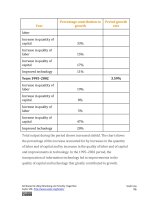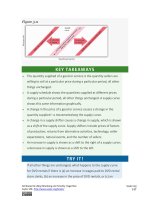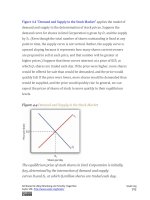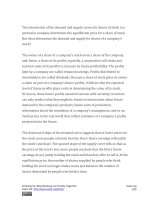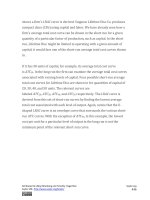Authors libby rittenberg 860
Bạn đang xem bản rút gọn của tài liệu. Xem và tải ngay bản đầy đủ của tài liệu tại đây (425.17 KB, 1 trang )
trade and competition policy, including anticompetitive practices. Nations
currently have quite different antitrust laws, as the Case in Point in this
section illustrates. The United States has argued against any
internationalization of antitrust issues that would reduce its ability to
apply U.S. laws. On the other hand, the United States, via the 1994
International Antitrust Enforcement Assistance Act, is negotiating bilateral
agreements that allow antitrust agencies in different countries to exchange
information for use in antitrust enforcement. The issue of how to deal with
anticompetitive practices on a worldwide basis remains unresolved, and
this area of antitrust practice and policy will be closely watched and
studied by economists.
KEY TAKEAWAYS
Increased imports in the last 25 years have led to a rethinking of
American antitrust policy.
One response by the U.S. to international competition is the
encouragement of joint ventures.
U.S. firms that have been “undersold” by foreign firms can charge
those firms with “dumping.”
The World Trade Organization is studying the interactions of trade,
competition, and antitrust issues.
TRY IT!
Suppose that long-distance companies in the United States form a
joint venture to explore alternative technologies in telephone
services. Would such an effort suggest any danger of collusion? Would
it be likely to be permitted?
Attributed to Libby Rittenberg and Timothy Tregarthen
Saylor URL: />
Saylor.org
860
